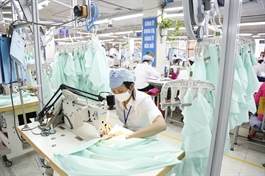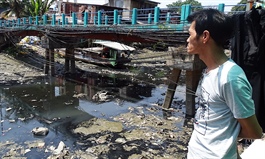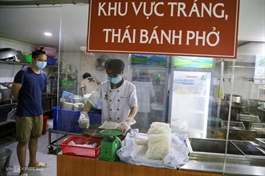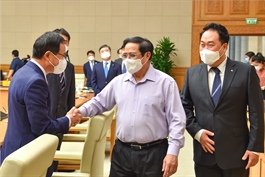Recovery, digitalisation and sustainability key ASEAN's focus
Recovery, digitalisation and sustainability key ASEAN's focus
Recovery, digitalisation and sustainability are major economic cooperation objectives for the Association of Southeast Asian Nations (ASEAN) in a post-pandemic world, said Vietnamese deputy minister of industry and trade Tran Quoc Khanh during the 53rd ASEAN Economic Ministers' Meeting.

In order to realise said objectives, the bloc has proposed a number of solutions including a regional framework for the circular economy, a review of non-tax incentives and a roadmap for ASEAN's digitalisation.
ASEAN will also continue to expand on several cooperation frameworks introduced by Viet Nam during the country's chairmanship of ASEAN in 2020 including the expansion of necessity goods in the fight against COVID-19 and a more streamlined process of economic cooperation and connecting supply chains during the pandemic.
ASEAN members continued to stay committed to a process of opening markets for commerce and investment activities, facilitating trade and the flow of goods and services and building toward a more sustainable production and supply chain in the region.
Khanh said one of the bloc's top priorities is the implementation of technologies to help businesses, especially small-to-medium-sized enterprises (SMEs), adapt to and overcome obstacles during the pandemic and to strengthen the region's appeal as an attractive destination for investment in the future.
Speaking of the Regional Comprehensive Economic Partnership (RCEP), the deputy minister said negotiations are underway and countries were looking to finalise the partnership agreements around the time for the 37th ASEAN Summit, scheduled to take place in November.
ASEAN countries have also expressed intentions for the partnership to go into effect in early 2022, saying it will provide a much-needed boost to the region's economic recovery as well as investment and trade.
Among the partnership's members, Singapore has already ratified the trade pact. Viet Nam was in the final stretch and will likely ratify it in November.
Once ratified by three-fifths of the 15 signatories – namely six ASEAN countries and three non-ASEAN countries, the RCEP agreement will enter into force in 60 days.
Member states of ASEAN and their FTA partners are Brunei, Cambodia, Indonesia, Laos, Malaysia, Myanmar, the Philippines, Singapore, Thailand, Viet Nam, China, Japan, India, South Korea, Australia and New Zealand.
The 16 countries negotiating the RCEP together account for a third of the world gross domestic product (GDP) and almost half the world’s population, with the combined GDPs of China and India alone making up more than half of that. RCEP's share of the world economy could account for half of the estimated $0.5 quadrillion global (GDP, PPP) by 2050.





















